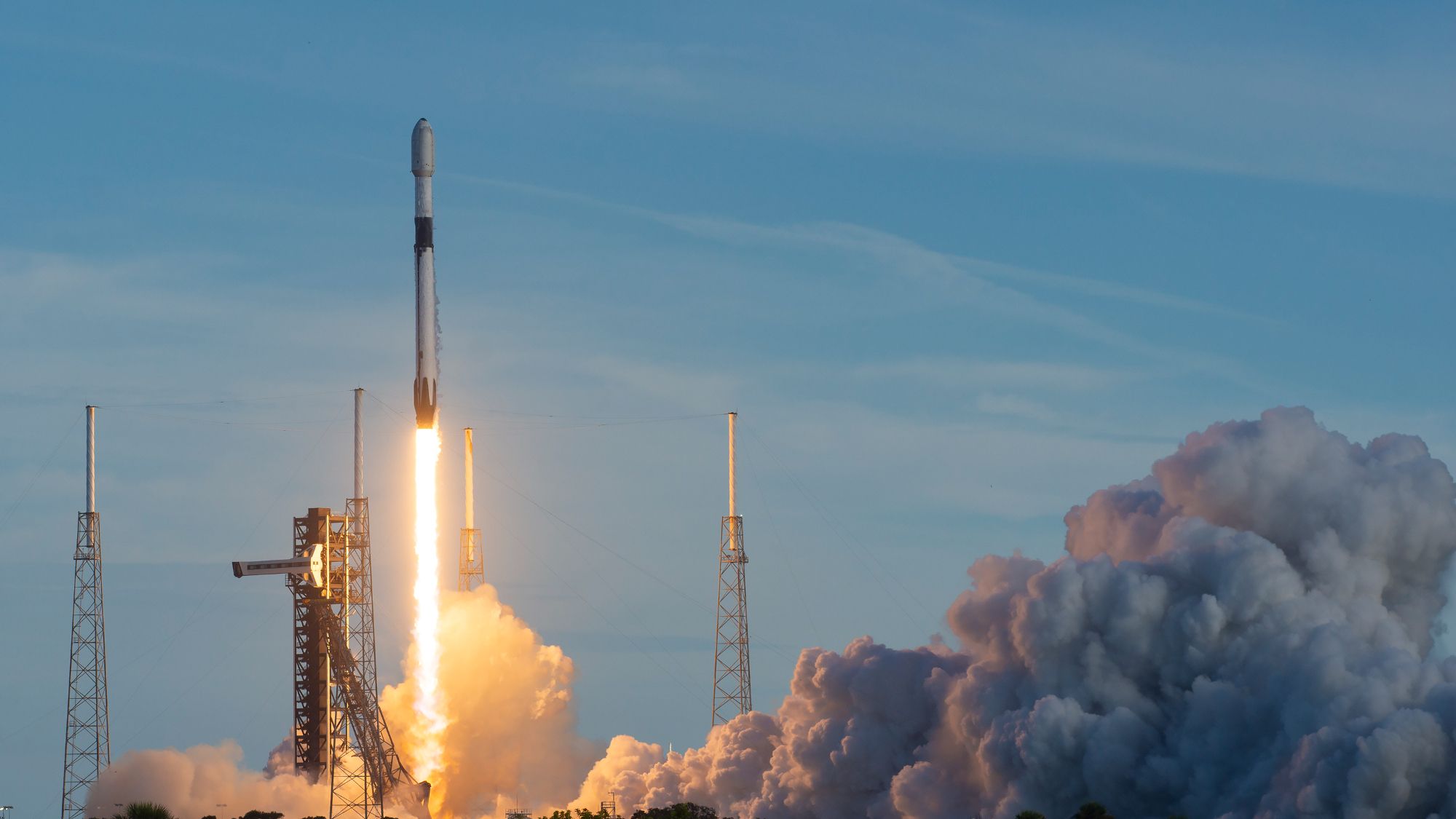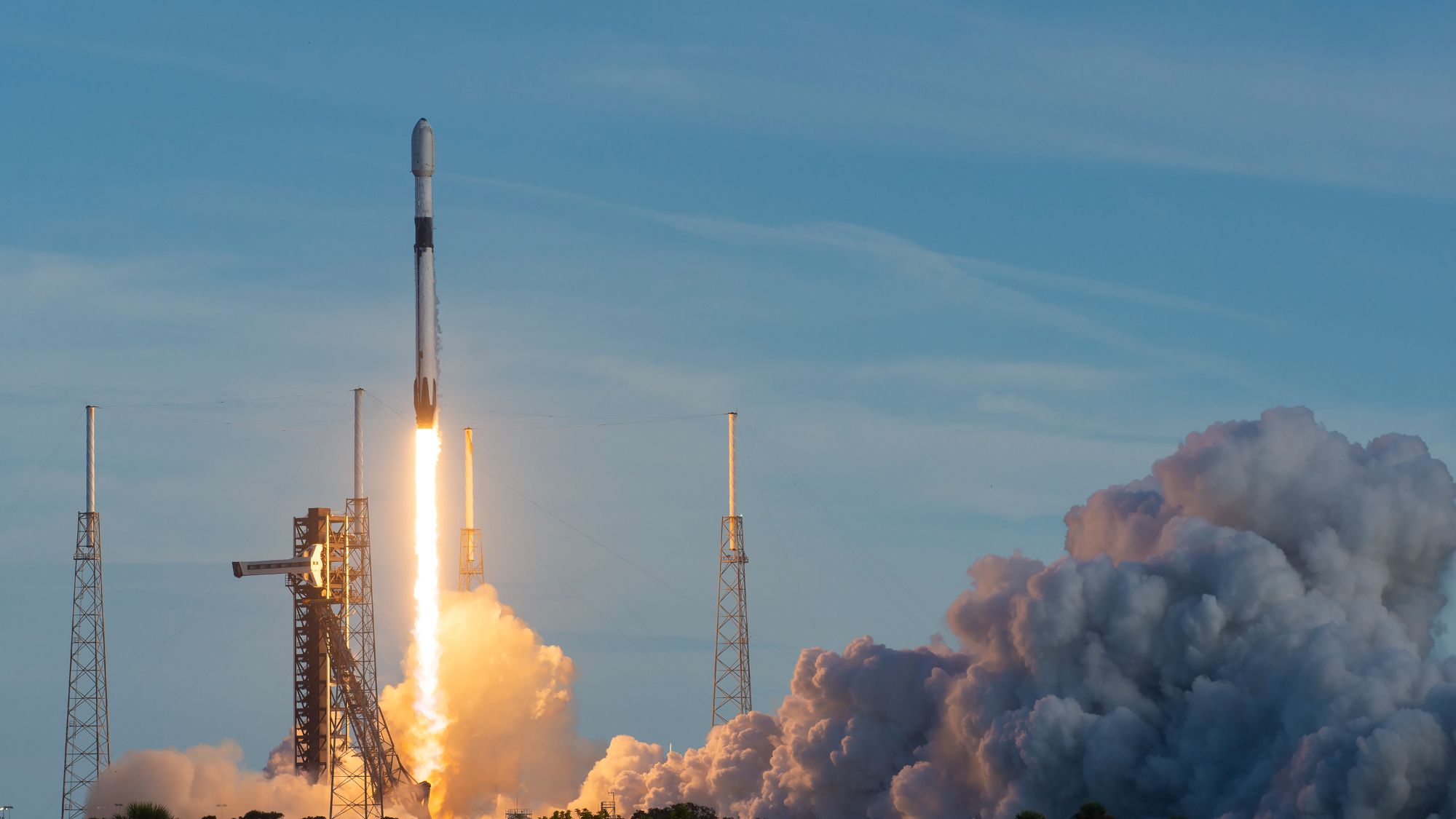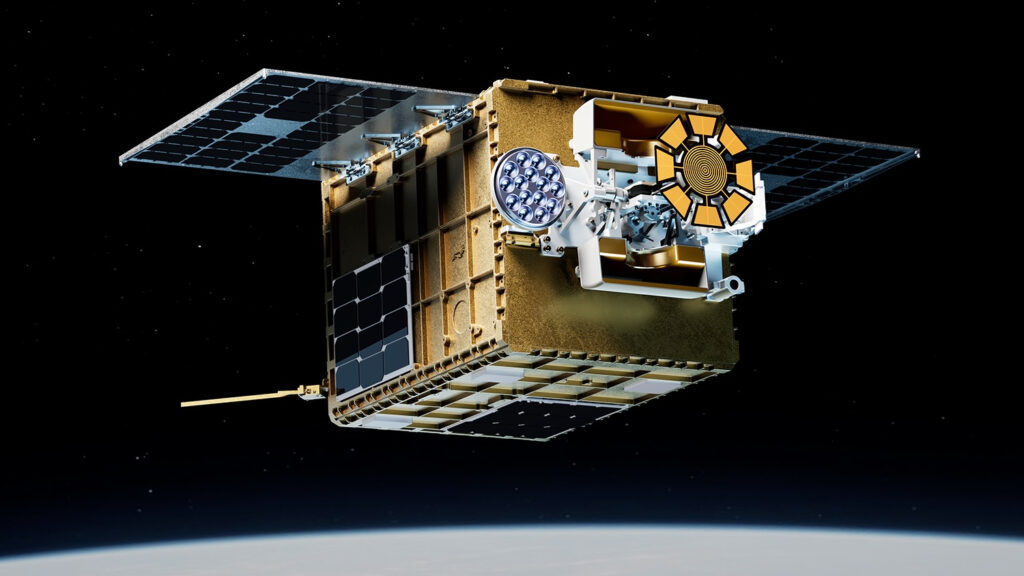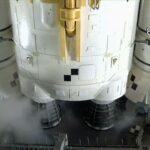Now Reading: Watch SpaceX launch 24 of Amazon’s Project Kuiper internet satellites to orbit today
-
01
Watch SpaceX launch 24 of Amazon’s Project Kuiper internet satellites to orbit today
Watch SpaceX launch 24 of Amazon’s Project Kuiper internet satellites to orbit today


Amazon’s Project Kuiper broadband megaconstellation continues to grow.
Twenty-four more Project Kuiper satellites are scheduled to take flight today (Oct. 9), lifting off from Florida’s Cape Canaveral Space Force Station atop a SpaceX Falcon 9 rocket at 9:34 p.m. EDT (0134 GMT on Oct. 10).
You’ll be able to watch the action live via SpaceX, beginning about 15 minutes before launch.
It will be SpaceX’s third Project Kuiper launch and the sixth overall dedicated to building out the nascent network, which will eventually consist of about 3,200 satellites in low Earth orbit (LEO). So far, 129 of them have reached the final frontier.
The rest will be lofted on more than 70 additional launches conducted by a variety of rockets — the Falcon 9, Arianespace’s Ariane 6, Blue Origin’s New Glenn and United Launch Alliance’s Atlas V and Vulcan Centaur.
If all goes to plan today, the 24 Kuiper craft will be deployed by the Falcon 9’s upper stage at an altitude of 289 miles (465 kilometers), over a 7.5-minute stretch that begins 56.5 minutes after liftoff.
“From there, we perform initial satellite health checks and prepare to raise the satellites to their assigned altitude of 392 miles (630 km), where they will be fully commissioned as part of our operational satellite constellation,” Amazon representatives wrote in a mission description.
As on virtually every SpaceX launch, there will be action in the downward direction today as well: The Falcon 9’s first stage will touch down in the Atlantic Ocean on the SpaceX droneship “Just Read the Instructions” a little over eight minutes after liftoff.
It will be the second launch and landing for this particular booster, according to SpaceX. The vehicle first flew Aug. 11 on another Project Kuiper launch, which happened to be SpaceX’s 100th mission of the year.
Related Stories:
Project Kuiper isn’t the only broadband megaconstellation under construction in LEO. SpaceX’s Starlink network already features more than 8,500 operational spacecraft, and it’s growing all the time; SpaceX has launched more than 90 Starlink missions so far this year alone.
And China is building two megaconstellations of its own, Guowang (“National Network”) and Qianfan (“Thousand Sails”), each of which will host about 13,000 satellites, if all goes to plan.
Stay Informed With the Latest & Most Important News
Previous Post
Next Post
-
 01Two Black Holes Observed Circling Each Other for the First Time
01Two Black Holes Observed Circling Each Other for the First Time -
 02From Polymerization-Enabled Folding and Assembly to Chemical Evolution: Key Processes for Emergence of Functional Polymers in the Origin of Life
02From Polymerization-Enabled Folding and Assembly to Chemical Evolution: Key Processes for Emergence of Functional Polymers in the Origin of Life -
 03Astronomy 101: From the Sun and Moon to Wormholes and Warp Drive, Key Theories, Discoveries, and Facts about the Universe (The Adams 101 Series)
03Astronomy 101: From the Sun and Moon to Wormholes and Warp Drive, Key Theories, Discoveries, and Facts about the Universe (The Adams 101 Series) -
 04Φsat-2 begins science phase for AI Earth images
04Φsat-2 begins science phase for AI Earth images -
 05Hurricane forecasters are losing 3 key satellites ahead of peak storm season − a meteorologist explains why it matters
05Hurricane forecasters are losing 3 key satellites ahead of peak storm season − a meteorologist explains why it matters -
 06Thermodynamic Constraints On The Citric Acid Cycle And Related Reactions In Ocean World Interiors
06Thermodynamic Constraints On The Citric Acid Cycle And Related Reactions In Ocean World Interiors -
 07Binary star systems are complex astronomical objects − a new AI approach could pin down their properties quickly
07Binary star systems are complex astronomical objects − a new AI approach could pin down their properties quickly



















